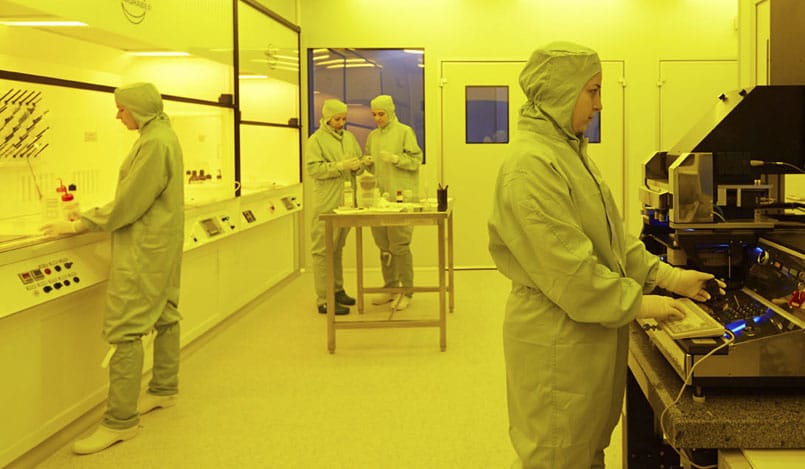Detection of extremely low levels of biomarkers of interest (TNFα)
To obtain clinically useful detection of the biomarker for inflammatory processes, TNFα.
Detection of concentrations of 6 pg/mL in samples of real serum.

Essential for the in vitro diagnosis sector is the development of detection technologies of sensitive and reliable biomarkers which, at the same time, are simple to use and of low cost.
In this context, an electrochemical biosensor for the detection of TNFα was developed - a cytokine, the overexpression of which is linked to a number of pathologies, such as rheumatoid arthritis, Alzheimer’s or Crohn’s disease. The TNFα is also the target in various biological treatments being currently undertaken with success (Adalimumab or Ifliximimab, for example).
Excellent results have been achieved with this electrochemical biosensor, obtaining limits of detection of 2 pg/mL in purified samples and of 5.8 pg/mL in samples of real serum, values that are below the normal ones for TNFα. The sensitivity of the technique, combined with its robustness, low cost and portability, make this biosensor an excellent candidate for the diagnosis and monitoring of the various inflammatory processes linked to this biomarker.
